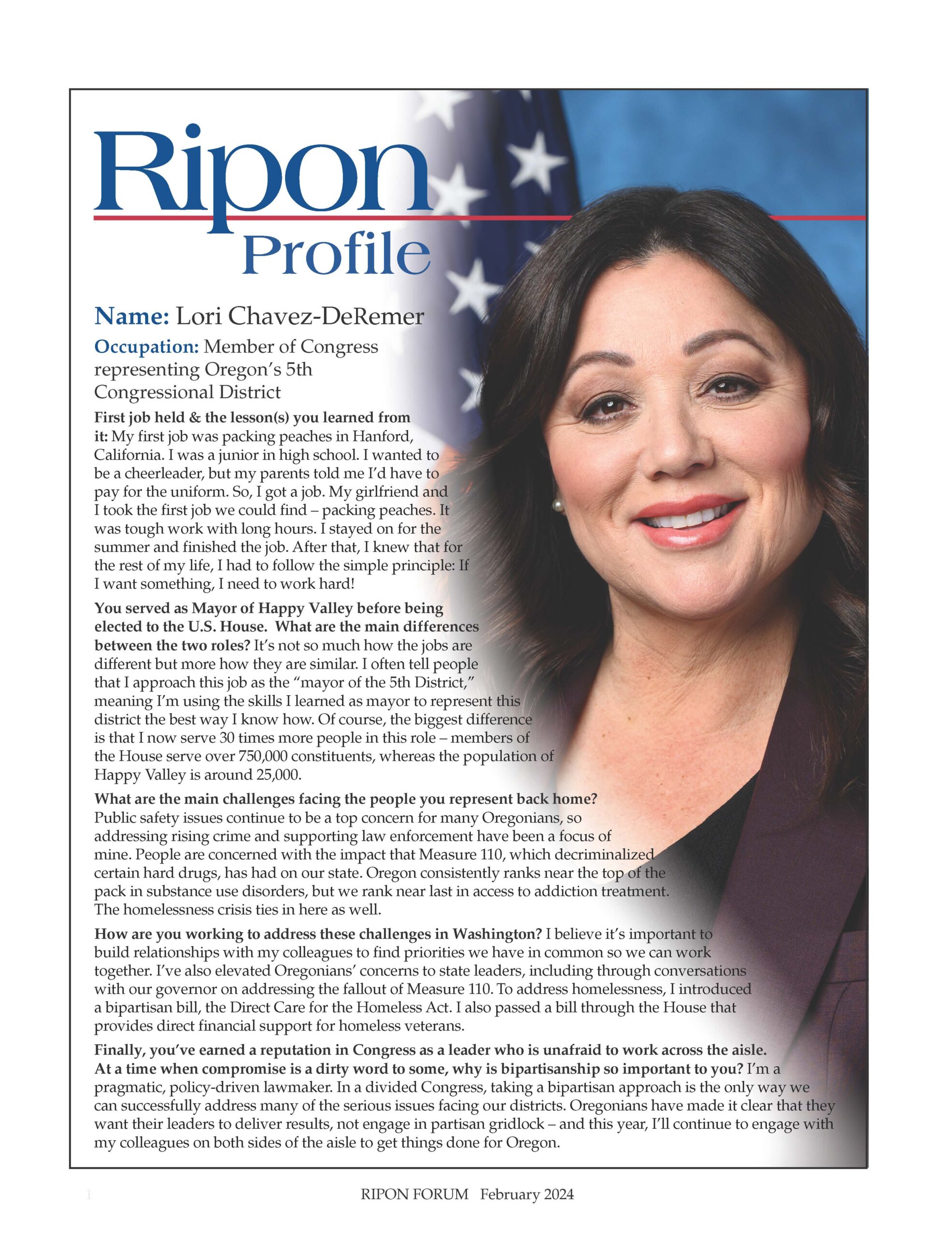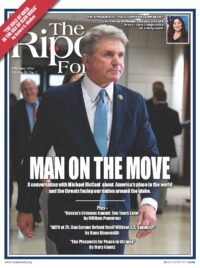
Name & occupation: Lori Chavez-DeRemer, Member of Congress representing Oregon’s 5th Congressional District
First job held & the lesson(s) you learned from it: My first job was packing peaches in Hanford, California. I was a junior in high school. I wanted to be a cheerleader, but my parents told me I’d have to pay for the uniform. So, I got a job. My girlfriend and I took the first job we could find – packing peaches. It was tough work with long hours. After the first day, my friend took her bag, she went home, and she said, “I’m never doing this again.” And she went and got a job as a cashier. I stayed on for the summer and finished the job. I worked 16-hour days. After that, I knew that for the rest of my life, I had to follow the simple principle: If I want something, I need to work hard!
You served as Mayor of Happy Valley before being elected to the U.S. House. What are the main differences between the two roles? It’s not so much how the jobs are different but more how they are similar. I often tell people that I approach this job as the “mayor of the 5th District,” meaning I’m using the skills I learned as mayor to represent this district the best way I know how. And that involves being in the communities I represent, listening to people’s concerns directly, and using this feedback to take action and deliver results. Of course, the biggest difference is that I now serve 30 times more people in this role – members of the House serve over 750,000 constituents, whereas the population of Happy Valley is around 25,000.
What are the main challenges facing the people you represent back home? Public safety issues continue to be a top concern for many Oregonians, so addressing rising crime and supporting law enforcement have been a focus of mine. People are concerned with the impact that Measure 110, which decriminalized certain hard drugs, has had on our state. Oregon consistently ranks near the top of the pack in substance use disorders, but we rank near last in access to addiction treatment. The homelessness crisis ties in here as well. Separately, I often hear from families who aren’t able to find affordable child care – the cost of child care soared as much as 37 percent in Oregon from 2020 to 2022, leaving it out of reach for too many moms and dads.
How are you working to address these challenges in Washington? I believe it’s important to build relationships with my colleagues to find priorities we have in common so we can work together. For example, I’ve worked with members from across the country – and across the aisle – to address the addiction crisis and public safety issues. One of the bills I led, the Opioid Crisis Workforce Act, just passed out of committee with bipartisan support. I’ve also elevated Oregonians’ concerns to state leaders, including through conversations with our governor on addressing the fallout of Measure 110. To address homelessness, I introduced a bipartisan bill, the Direct Care for the Homeless Act. I also passed a bill through the House in December that provides direct financial support for homeless veterans. On the child care front, I’m honored to lead the bipartisan Child Care Investment Act, which would enhance existing tax credits to help make child care more affordable for families and small businesses. I’ve also worked on legislation to encourage the U.S. Department of Agriculture (USDA) to address these concerns specifically in rural areas, so Oregon farmers and ranchers aren’t left behind.
Finally, you’ve earned a reputation in Congress as a leader who is unafraid to work across the aisle. At a time when compromise is a dirty word to some, why is bipartisanship so important to you? I’m a pragmatic, policy-driven lawmaker. In a divided Congress, taking a bipartisan approach is the only way we can successfully address many of the serious issues facing our districts. That’s why I’ve made working across the aisle a top priority and quickly joined the Problem Solvers Caucus at the beginning of my term. Oregonians have made it clear that they want their leaders to deliver results, not engage in partisan gridlock – and this year, I’ll continue to engage with my colleagues on both sides of the aisle to get things done for Oregon.




